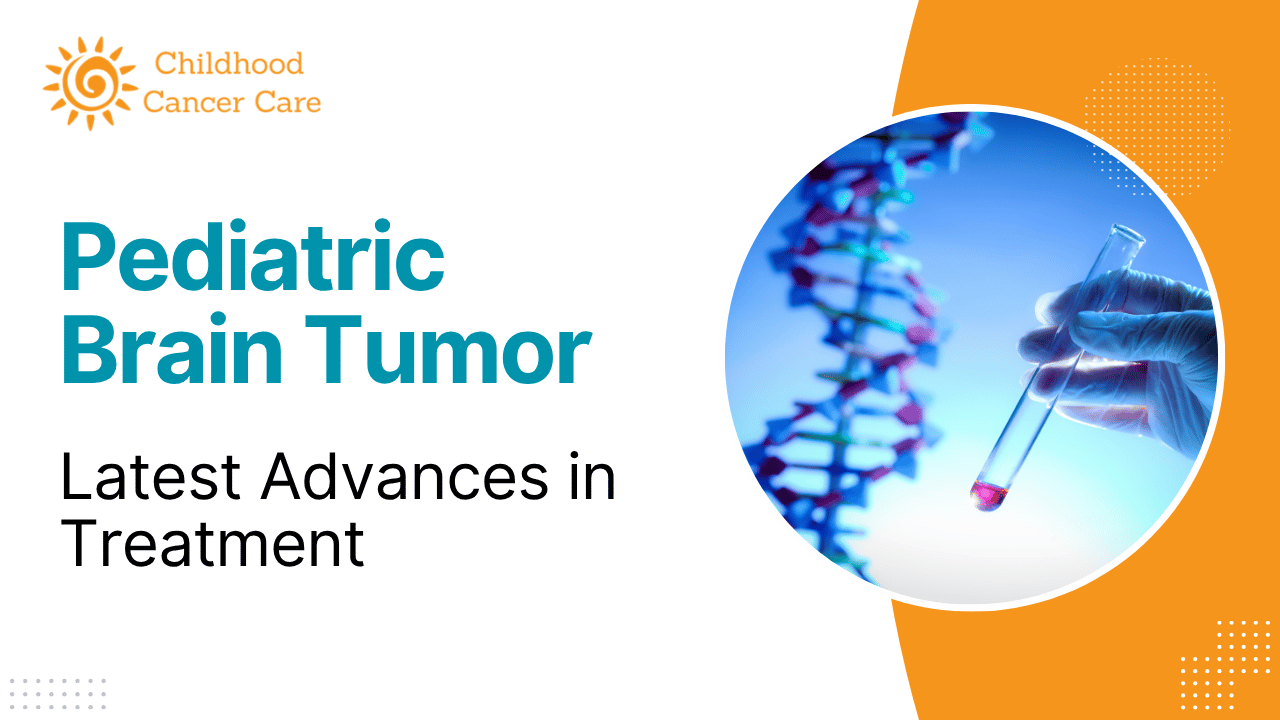Pediatric Brain Tumor Treatment in Mumbai

Latest Advances in Pediatric Brain Tumor Treatment
Pediatric brain tumors are a serious concern for many families. These conditions affect a child’s brain and nervous system and require specialized care. In recent years, treatments have improved in both safety and effectiveness. Understanding what’s available can help parents make informed decisions. This guide explains the basics, common signs, treatment options, and expert recommendations.
Understanding Pediatric Brain Tumors

A brain tumor is a mass of abnormal cells growing in the brain. In children, these tumors can be either benign (non-cancerous) or malignant (cancerous).
- Medulloblastoma – A fast-growing cancer often seen in the cerebellum.
- Astrocytoma – A tumor that develops from brain cells called astrocytes.
- Ependymoma – Found in the fluid-filled spaces of the brain.
- Gliomas – Can occur in different parts of the brain and spinal cord.
- Low-grade gliomas – Slow-growing and often easier to treat.
The type, size, and location of the tumor influence the treatment plan.
How Are Pediatric Brain Tumors Diagnosed?
Early and accurate diagnosis is key to effective treatment.
- MRI (Magnetic Resonance Imaging): The most detailed imaging test for brain tumors.
- CT Scan: A faster imaging option used in emergency cases.
- Biopsy: A small sample of the tumor is removed and tested to determine the type.
- Lumbar Puncture: Checks for cancer cells in spinal fluid.
- Genetic Testing: Helps doctors choose the right therapy based on tumor mutations.
Role of Clinical Trials in Pediatric Brain Tumors
Many treatment breakthroughs come from clinical trials. They offer access to:
- New drugs not yet available in standard treatment
- Personalized therapies targeting genetic changes
- Immune-based treatments with fewer side effects
Parents can discuss with their doctor if their child qualifies for a clinical trial.
Causes and Symptoms of Pediatric Brain Tumors
The exact cause is still unclear. Some cases may be linked to genetic conditions like Li-Fraumeni syndrome, Neurofibromatosis, or exposure to radiation. Most cases are not inherited.

Common symptoms:
- Headaches, especially in the morning
- Vomiting without feeling sick
- Trouble with balance or walking
- Changes in vision or speech
- Seizures
- Unexplained fatigue or behavior changes
If your child shows persistent symptoms, consult a pediatric neurologist or oncologist. Early detection can lead to better outcomes.
Treatment Options in 2025
Pediatric brain tumor treatment is more precise and safer today.
- Surgery:
- Often the first step if the tumor can be safely removed.
- Neurosurgeons aim to remove as much of the tumor as possible.
- Radiation Therapy:
- High-energy rays target and destroy cancer cells.
- Advanced techniques like Proton Beam Therapy reduce damage to healthy tissue.
- Shorter treatment durations with more accurate delivery.
- Chemotherapy:
- Medicines are used to kill cancer cells or stop their growth.
- Used alone or in combination with other treatments.
- Targeted Therapy:
- Drugs attack specific genes or proteins in cancer cells.
- Fewer side effects compared to traditional chemotherapy.
- Immunotherapy:
- Boosts the body’s immune system to fight cancer.
- New trials are showing positive results in children with relapsed tumors.
- Precision Oncology:
- Treatment is based on the genetic makeup of the tumor.
- Doctors use personalized data to choose the most effective drug.
Supportive therapies:
- Physical and occupational therapy for mobility and strength
- Psychological support for emotional well-being
- Educational assistance for learning challenges
Long-Term Care After Treatment

- Regular follow-ups check for tumor recurrence or late effects.
- Neurocognitive testing may be needed to assess learning or memory changes.
- Speech, physical, or occupational therapy may help regain skills.
- Endocrine care is sometimes required if the tumor or treatment affected hormone production.
- Monitoring for emotional well-being helps ensure a good quality of life.
Nutrition and Lifestyle Tips for Recovery
- Offer small, frequent meals if appetite is low.
- Include iron-rich foods, lean protein, fruits, and vegetables.
- Ensure adequate hydration.
- Encourage gentle physical activity once approved by doctors.
- Keep regular sleep schedules to improve healing.
Expert Advice for Parents
- Keep track of your child’s symptoms and report any changes to the doctor.
- Ask about genetic testing to guide treatment.
- Make sure your child gets regular follow-up care, even after recovery.
- Choose a hospital with experience in pediatric oncology and neurosurgery.
- Don’t hesitate to seek a second opinion if you have concerns.
Meet Dr. Shweta Bansal
Dr. Shweta Bansal is a Pediatric Hemato Oncologist and Bone Marrow Transplant Specialist in Mumbai. She serves as Head of Department and Senior Consultant at Sir H. N. Reliance Foundation Hospital. Her expertise includes: Brain tumors , Solid tumors like Wilm’s tumor, sarcoma, and neuroblastoma, Blood disorders like thalassemia, anemia, leukemia, and platelet disorders, Bone marrow transplants and immunotherapy.
📞 Book an appointment: Visit the hospital website or call the outpatient department for scheduling.
Frequently Asked Questions (FAQs)
Conclusion
Pediatric brain tumors are challenging, but today’s medical advances bring new hope. From targeted therapy to personalized care, treatments are becoming safer and more effective. Parents who stay informed and choose experienced doctors give their child the best chance at recovery. Always ask questions, trust your instincts, and seek support when needed. Your child’s journey is tough, but with the right care, healing is possible.
Copyright © Childhood Cancer Care | Dr. Shweta Bansal.